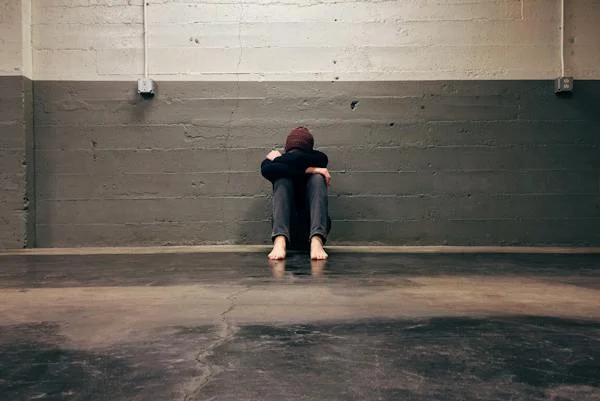
Individuals struggling with chronic pain often face challenges in managing their condition. The impact of chronic pain on addiction and vice versa has raised concerns within the healthcare community. In understanding the relationship between chronic pain and addiction, it is crucial to recognize the results of drug abuse and how it can effectively address the needs of patients dealing with chronic low back pain and other conditions.
Understanding the Connection between Addiction and Chronic Pain
Chronic pain, particularly neuropathic pain, can significantly impact an individual’s quality of life and pain perception, often leading to emotional distress and impairing daily functioning. In some cases, individuals may turn to addictive substances such as opioids for pain relief, inadvertently developing a substance use disorder. On the other hand, those with existing addiction issues may find it challenging to manage their chronic pain effectively, leading to further complications in their treatment and recovery process.
Impact of chronic pain on addiction
Chronic pain can drive individuals to seek pain relief through various means, including the misuse of pain medication or other substances. This can contribute to the development of addictive behaviors and alter pain behavior, making the individual’s overall well-being and recovery from addiction more complicated.
Effect of addiction on chronic pain management
Individuals with addiction may struggle to adhere to prescribed pain management regimens, which can result in inadequate pain control and exacerbation of their chronic pain condition. Additionally, the presence of addiction can influence the effectiveness of pain interventions, posing a challenge for healthcare providers in achieving comprehensive pain management outcomes.
Challenges in treating co-occurring addiction and chronic pain
Treating individuals with both addiction and chronic pain requires a highly individualized approach, considering the complexities involved in managing these co-occurring conditions. The presence of addiction can impact the selection of pain medicine and treatment modalities for chronic pain, further complicating the overall care plan.
Identifying the Risk Factors and Triggers for Addicted Patients with Chronic Pain
Recognizing factors contributing to the development and perpetuation of addiction in individuals with chronic pain, such as chronic low back pain, is essential. Understanding the pain behavior and triggers for relapse is crucial in providing comprehensive care for this patient population dealing with chronic pain and drug abuse.
Opioid and substance abuse as a coping mechanism for pain
Individuals with chronic pain may resort to opioid and substance abuse as a means to cope with their pain intensity, seeking temporary relief from their symptoms. This can lead to the development of addictive behaviors, further complicating their overall well-being.
Relapse triggers for individuals with chronic pain and addiction
Factors such as uncontrolled neuropathic pain, emotional distress, and social stressors can act as triggers for relapse in individuals dealing with chronic pain and addiction. Addressing these triggers is essential in preventing relapse and promoting sustained recovery.
Understanding the seeking behavior in addicted patients with chronic pain
Individuals with co-occurring addiction and chronic pain may exhibit drug-seeking behavior in an attempt to alleviate their pain or satisfy their addictive cravings. Understanding and addressing these behaviors are crucial in providing effective and holistic care for these patients.
Options for Pain Management and Addiction Treatment
Developing integrated approaches for the treatment of chronic pain in individuals with addiction, taking into account the type of pain whether it is acute or neuropathic pain, is vital in addressing their unique care needs. Combining pain management strategies with addiction treatment can significantly improve outcomes for these patients.

Approaches for managing chronic pain in addicted patients
Incorporating non-pharmacological interventions such as physical therapy, cognitive-behavioral therapy, and interventional procedures can offer alternative avenues for managing chronic pain in individuals with addiction. These approaches aim to reduce reliance on opioid medications while effectively addressing pain symptoms.
Treatment options for individuals with chronic pain and active addiction
Medication-assisted treatment coupled with comprehensive pain management strategies can support individuals dealing with chronic pain and active addiction. This integrated approach focuses on addressing both conditions concurrently to promote optimal recovery outcomes.
Addressing addictive behaviors in chronic pain management
Integrating addiction treatment components, such as counseling and support groups, into chronic pain management programs can effectively address addictive behaviors while promoting holistic well-being for individuals dealing with both conditions.
Integrated Treatment Approaches for Patients with Chronic Pain and Addiction
Utilizing an interdisciplinary care model is essential in providing comprehensive support for patients facing both chronic pain and addiction. Addressing their mental health concerns and tailoring recovery strategies are crucial components of the treatment approach.
Utilizing interdisciplinary care in managing co-occurring addiction and chronic pain
Collaboration among healthcare professionals, including pain specialists, addiction counselors, and mental health professionals, is pivotal in delivering integrated care for individuals with both chronic pain and addiction. This approach ensures that the patient’s unique needs are effectively addressed through a coordinated and holistic plan for the treatment of chronic pain and recovery from addiction.
Addressing mental health concerns in addicted patients with chronic pain
Individuals with co-occurring addiction and chronic pain may experience significant mental health challenges. Incorporating mental health evaluations, understanding pain perception, and providing access to psychiatric support are essential in addressing these concerns as part of the overall treatment strategy for pain management.
Recovery strategies tailored for individuals with chronic pain and addiction
Developing personalized recovery from addiction plans that account for the complexities of the treatment of chronic pain and addiction is crucial in supporting individuals throughout their journey to wellness. These tailored strategies aim to address the unique needs and challenges faced by patients with co-occurring conditions, promoting sustainable recovery and improved quality of life through appropriate pain medicine.
Supporting Addicted Patients with Chronic Pain in Recovery
Recovery from both addiction and chronic pain requires ongoing support and targeted interventions to prevent relapse and promote holistic well-being. Implementing strategies for relapse prevention, and supporting overall recovery from addiction alongside chronic pain management are essential components of the care process.
Relapse prevention strategies for addicted patients with chronic pain
Implementing individualized relapse prevention plans that consider the specific triggers and vulnerabilities of each patient, including their pain perception and type of pain, is critical in supporting their sustained recovery. These strategies aim to equip individuals with the necessary tools to navigate potential challenges, manage their type of pain, and maintain their progress in recovery from addiction.
Promoting holistic well-being in chronic pain and addiction recovery
Encouraging the adoption of healthy lifestyle practices, incorporating physical activity, nutrition, and stress management, is essential in promoting holistic well-being for individuals in recovery from both chronic pain and addiction. These efforts contribute to improved overall health and reduced vulnerability to relapse.
Addressing the challenges of treating pain without fostering addiction
Healthcare providers must navigate the complexities of pain management in individuals with a history of addiction, ensuring that pain treatment is delivered in a manner that minimizes the potential for fostering or exacerbating addictive behaviors. A carefully tailored approach is essential in effectively addressing pain while safeguarding against the risks of addiction.
Q: What are the common signs of drug seeking behavior in chronic pain patients?
A: Common signs of drug seeking behavior in chronic pain patients may include frequent requests for early prescription refills, insistence on specific medications, resistance to non-medication pain management options, and unwillingness to explore alternative treatments.
Q: How can chronic pain patients with addiction be effectively treated for their pain?
A: Chronic pain patients with addiction can be effectively treated for their pain through a comprehensive approach that combines evidence-based pain management strategies with addiction treatment, such as integrated care in a specialized clinic setting, involving collaborative efforts between addiction specialists and pain management providers.
Q: What are the most effective pain management options for individuals recovering from addiction?
A: The most effective pain management options for individuals recovering from addiction include non-pharmacological interventions such as cognitive-behavioral therapy, physical therapy, acupuncture, mindfulness-based practices, and non-opioid medications, in conjunction with ongoing support for addiction recovery.
Q: How can healthcare providers differentiate between drug seeking behavior and legitimate pain in patients with addiction?
A: Healthcare providers can differentiate between drug seeking behavior and legitimate pain in patients with addiction by conducting thorough assessments, utilizing validated pain assessment tools, monitoring treatment adherence and response, and collaborating with interdisciplinary teams to ensure comprehensive care tailored to the individual’s needs.
Q: What are the challenges in providing pain relief for individuals with a history of drug addiction?
A: The challenges in providing pain relief for individuals with a history of drug addiction include balancing the need for effective pain management with the risk of substance misuse, navigating concerns regarding tolerance and dependence, and addressing stigma and bias in healthcare settings when addressing pain complaints from individuals with addiction histories.
Q: What are the available resources for healthcare professionals treating chronic pain in patients with addiction?
A: Healthcare professionals treating chronic pain in patients with addiction can access resources such as clinical guidelines from organizations like the American Society of Addiction Medicine, specialized training programs on pain management in addiction settings, and interdisciplinary networks for consultation and referral services.
Q: How can healthcare providers address the complex interplay between emotional pain, addiction, and chronic pain syndromes?
A: Healthcare providers can address the complex interplay between emotional pain, addiction, and chronic pain syndromes by integrating trauma-informed care principles, fostering therapeutic alliances, and tailoring treatment approaches that address the interconnected aspects of physical and emotional suffering in individuals with addictive disorders and pain conditions.










